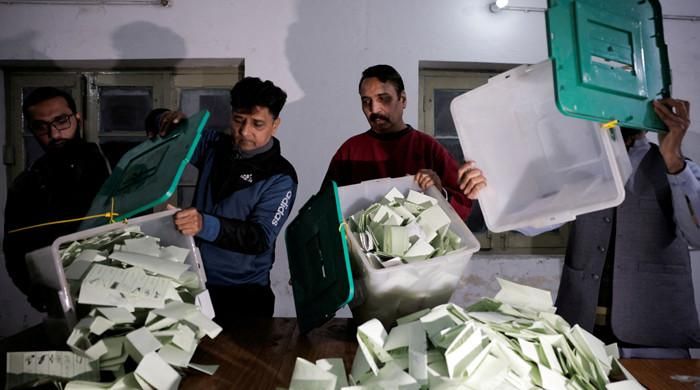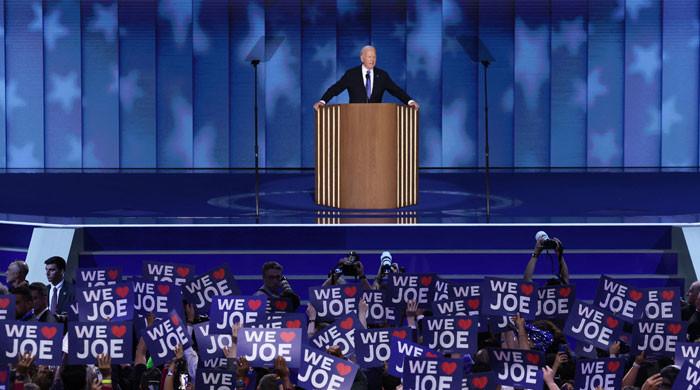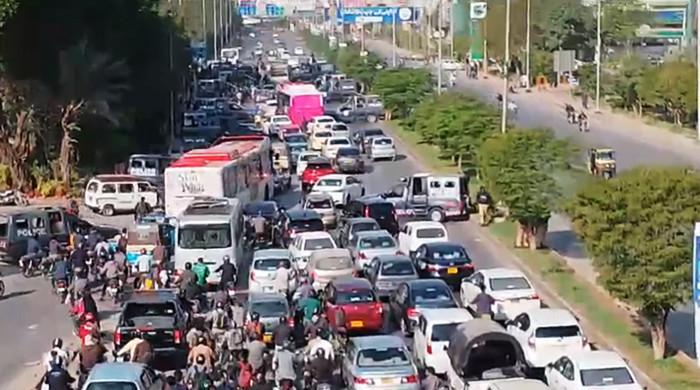Post-poll satisfaction hit record low equal to 2002 score of 40%, indicating growing public distrust: report
- The report highlights declining equity scores.
- The fairness score from the 2013 and 2018 surveys stood at 57% and 52%.
- Pildat calls for a commission of inquiry to investigate the irregularities.
The 2024 general elections recorded the lowest fairness score since 2013, indicating irregularities and growing distrust in the electoral process, according to a report released on Wednesday by the Pakistan Institute of Legislative Development and Transparency (Pildat).
Pildat, a leading non-governmental election monitoring organization, has released its assessment of the February 8 election, highlighting a worrying decline in fairness scores compared to previous election cycles.
It said the overall fairness of Pakistan's 2024 elections received a score of 49%, three percentage points lower than the score received in the 2018 general elections, the report said.
The fairness assessment scores for the 2013 and 2018 elections were 57% and 52%, respectively.
Overall, these scores, particularly their steady decline since 2013, are emblematic of the weakening of democratic processes in Pakistan and underline the urgent need to restore public confidence in the electoral system, the election watchdog said.
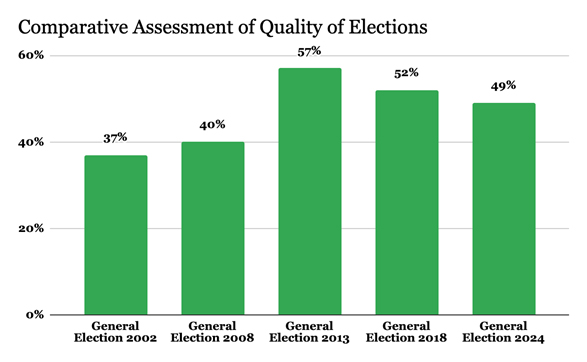
Pildat also recommended improving transparency and accountability measures throughout the electoral process, calling on the Election Commission of Pakistan (ECP) to conduct a thorough investigation into the delays and shortcomings observed during the elections, particularly in the collection, transmission and consolidation of results.
Despite progress, the pre-election phase has stalled at a 50% fairness score since 2018, indicating persistent pre-election problems.
The report says the Election Day voting process score fell to 58% in 2024 from 64% in 2018, but showed an increase from 44% in 2013, reflecting fluctuating levels of voter experience. .
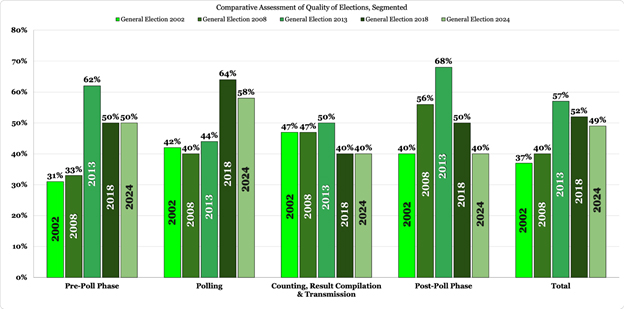
Furthermore, he said there had been no progress in results management since 2018, with a score stagnant at 40%, highlighting the critical need for an investigation into the functioning of the Electoral Management System (EMS).
Post-election satisfaction hit an all-time low matching the 2002 score of 40%, indicating growing public distrust in the election results, according to the Pildat report.
Quality of general elections
The report also highlighted considerable delays in scheduling elections, political repression, lack of impartiality of caretaker governments and state institutions, and worsening law and order in Khyber Pakhtunkhwa and Balochistan during the run-up to the elections.
On election day, the suspension of mobile phone and Internet services not only compromised the SME but also created problems for public participation in the electoral process, he said.
After the elections were completed, the delay in announcing the provisional results beyond the deadline set in Section 13 (3) of the Electoral Act, 2017 raised serious doubts about the credibility of the elections.
The election watchdog also noted that widespread allegations of discrepancy between Forms 45 and 47 have also raised concerns over the credibility of the elections.
“The delay in publishing Forms 45, 46, 48 and 49 on the ECP website – a violation of Section 95 (10) of the Electoral Act, 2017 – has further damaged the credibility of the elections.”
Pildat's recommendations.
The Pildat recommended the ECP to carry out a thorough and impartial investigation into the delays in the transmission, consolidation and announcement of the provisional results.
Additionally, the ECP was also urged to investigate the lack of contingency planning to meet the deadlines for issuing results in the event of EMS inoperability and the failure to publish signed copies of forms 45, 46, 48 and 49 within 14 days after Election Day, as required. under the Electoral Law of 2017.
“We also recommend that, to end the controversies related to GE2024, a clear path be decided on the way forward. There are only two possible paths to consider.
The electoral watchdog demanded that the number of electoral tribunals be adequately increased to decide all election petitions within the legal period of 180 days to avoid excessive delays.
In addition to the electoral courts, Pildat also called for the constitution of an investigative commission like the one formed to investigate the 2013 general elections.
“The incoming National Assembly and the Senate should deliberate and decide whether to constitute a commission of inquiry to ensure accountability, transparency and political stability.”

